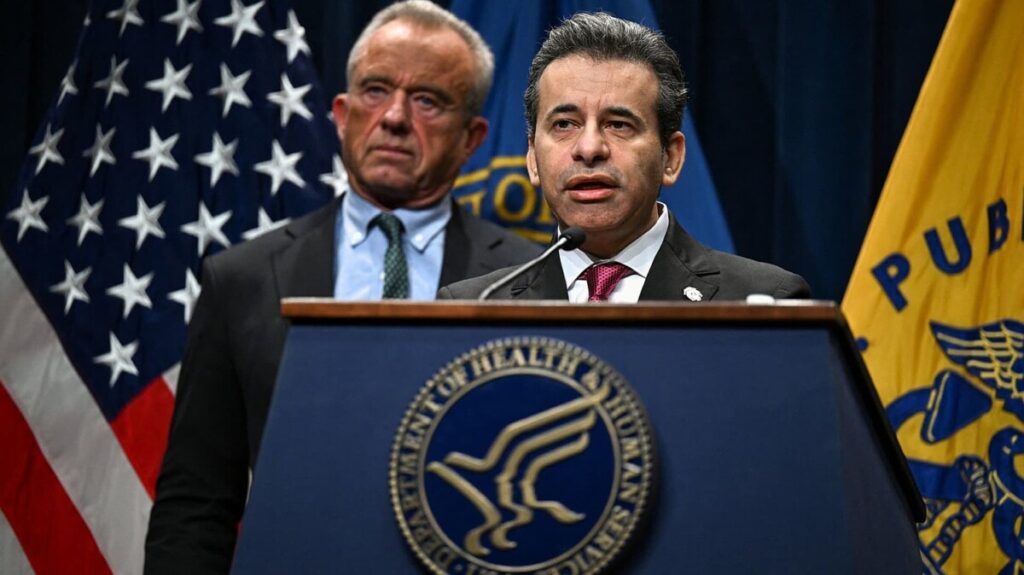FDA to speed up approvals of generic biologic medicines as Trump targets high drug costs
In a significant policy shift aimed at addressing the escalating costs of prescription drugs in the United States, the Trump administration has unveiled new measures designed to rein in prices that have long burdened American consumers. This initiative comes at a time when the public outcry over high medication costs has reached a fever pitch, with many Americans struggling to afford essential treatments. The administration’s plan includes provisions that could potentially limit the prices pharmaceutical companies can charge for their products, a move that industry leaders have criticized as detrimental to innovation and investment in new drug development.
One of the key components of the Trump administration’s strategy is the introduction of a “Most Favored Nation” clause, which would ensure that Medicare pays no more for drugs than the lowest price paid in other developed countries. This approach aims to leverage the purchasing power of the federal government to negotiate better prices on behalf of American consumers, who often face higher costs than their counterparts in other nations. For example, a recent report highlighted that some cancer medications can cost American patients upwards of $10,000 a month, while similar treatments are available in countries like Canada and the UK for a fraction of that price. By implementing such measures, the administration hopes to create a more equitable pricing structure that aligns with global standards and alleviates the financial strain on American families.
Critics of the plan, however, argue that capping prices could stifle pharmaceutical innovation and lead to shortages of new drugs. They contend that the high prices currently charged are necessary to fund research and development, which can take years and require substantial investment. Pharmaceutical companies have voiced concerns that if their profit margins are squeezed, it could result in fewer breakthroughs in life-saving medications. Despite these warnings, the administration remains steadfast in its commitment to reforming the prescription drug landscape, viewing this as a critical step in ensuring that all Americans have access to affordable healthcare. As the debate continues, the implications of these policies will be closely watched by both consumers and industry stakeholders, with the potential to reshape the future of pharmaceutical pricing in the U.S.
Related articles:
– Link 1
– Link 2
It’s the Trump administration’s latest move to rein in high prescription drug costs in the U.S., and could be a blow to pharmaceutical companies.
Eric
Eric is a seasoned journalist covering Business news.


